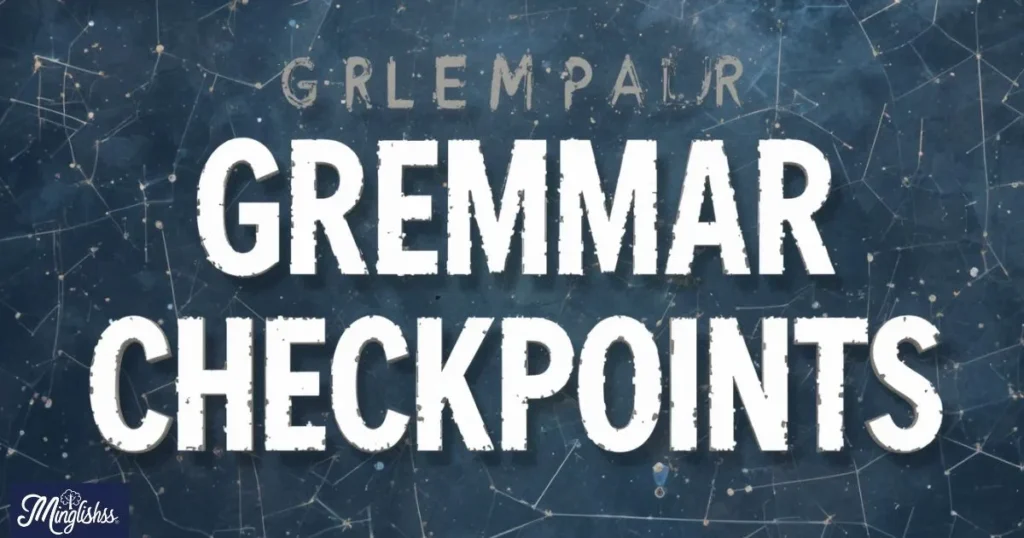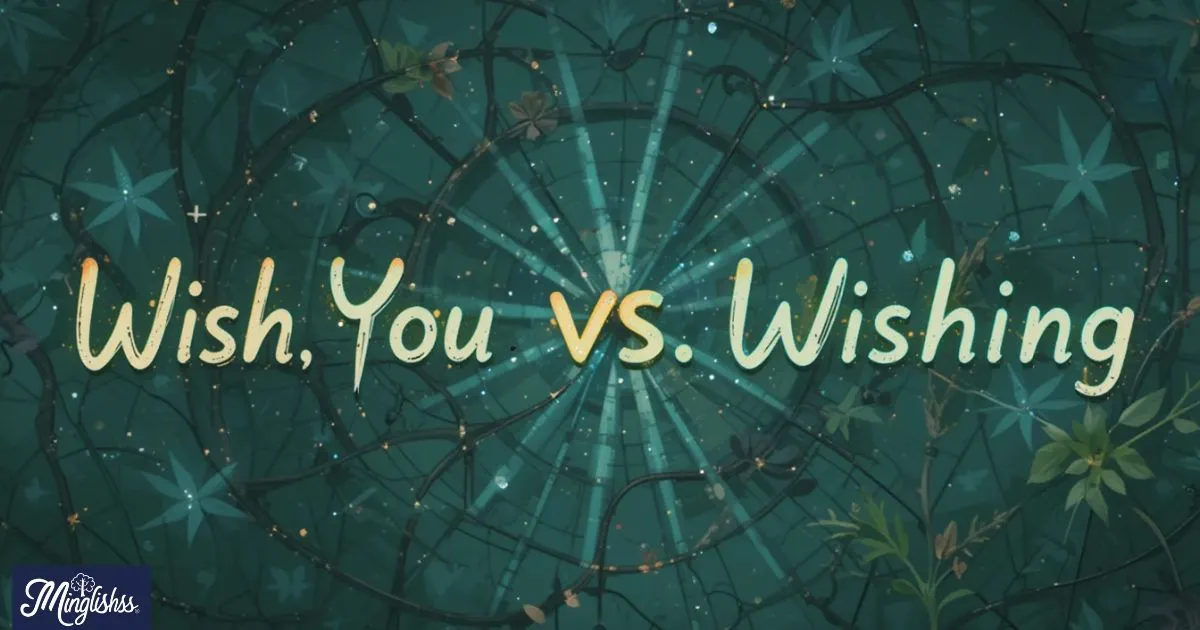“Master the art of using ‘wish you’ and ‘wishing you’ for every occasion, ensuring clarity and warmth in your greetings.”
Greetings play an essential role in personal and professional communication. They set the tone, convey emotions, and leave lasting impressions. Among the most commonly used phrases, “wish you“ and “wishing you“ often create confusion. Both expressions seem similar, yet they differ slightly in tone, context, and grammatical use.
Understanding their nuances is crucial to effectively expressing sentiments in formal and informal settings. Are you unsure about which greeting fits your situation best? Do you find yourself hesitating between “wish you“ and “wishing you“ in emails or cards? Don’t worry! This blog post will unravel their differences, highlight their contextual applications, and provide practical examples to help you choose the right phrase confidently.
Let’s dive into a detailed exploration of these phrases, learning when and how to use each expression appropriately. When you’re crafting heartfelt wishes for holidays, birthdays, or professional milestones, this guide will sharpen your communication skills and enhance your message delivery.
Understanding the Basics
Grammar Overview
The phrases “wish you” and “wishing you” are grammatically different. “Wish you” functions as a verb phrase, often paired with a subject like I or we, followed by an object, making it suitable for direct statements. On the other hand, “wishing you” acts as a participial phrase, implying an ongoing or continuous tone, ideal for indirect or implied wishes.
Examples:
- I wish you success in your endeavors.
- Wishing you all the best in your new job!
- We wish you a happy anniversary.
Common Usage of “Wish You”
The phrase “wish you” is formal and widely used in structured sentences to express clear intentions or desires. It is common in business emails, professional letters, and official greetings.
Examples:
- I wish you a prosperous New Year.
- We wish you safe travels.
- I wish you the best of health and happiness.
Common Usage of “Wishing You”
“Wishing you” conveys warmth and sincerity and is typically employed in casual settings or personal messages. It’s more conversational and often found in greeting cards or informal notes.
Examples:
- Wishing you a wonderful birthday!
- Wishing you happiness and love on your wedding day.
- Wishing you success in all your future plans.
Contextual Usage and Examples
Formal vs. Informal Settings
Understanding the tone and audience is essential. “Wish you” fits formal scenarios, while “wishing you” suits personal interactions.
Examples:
- Formal: I wish you continued growth and prosperity.
- Informal: Wishing you loads of fun and laughter!
- Neutral: Wish you success in your exam.
Common Phrases and Sentiments
Both expressions pair well with positive sentiments like happiness, success, or good health.
Examples:
- Wish you peace and joy this season.
- Wishing you sunny days and smiles.
- I wish you a productive year ahead.
Cultural and Regional Variations
Greetings may differ based on cultural practices. In Western cultures, “wishing you” is often seen in informal cards, whereas “wish you” dominates formal communication. In Asian cultures, formality plays a bigger role, making “wish you” more common.
Examples:
- Western Greeting: Wishing you a Merry Christmas!
- Asian Formality: I wish you a prosperous New Year.
- Global Context: Wish you success in your ventures.
Detailed Examples and Scenarios
Professional Communication
When professionalism matters, “wish you” conveys respect and decorum.
Examples:
- I wish you a smooth transition to your new role.
- We wish you success in your project delivery.
- I wish you great achievements in your career.
Personal Communication
For heartfelt or casual messages, “wishing you” offers a personal touch.
Examples:
- Wishing you endless happiness in your marriage.
- Wishing you a fun-filled birthday celebration.
- Wishing you the best memories this holiday season.
Event-Specific Uses
Adapt your greeting to fit specific occasions, ensuring appropriateness.
Examples:
- Birthday: Wishing you a fabulous year ahead!
- Wedding: We wish you a lifetime of love and laughter.
- Graduation: Wishing you success in your future endeavors.
Common Mistakes and How to Avoid Them
Misinterpretations
Misusing these phrases can confuse recipients. Ensure clarity by matching the tone to the situation.
Examples:
- Incorrect: Wishing you will achieve great things.
- Correct: Wishing you great achievements.
Grammar Checkpoints

Verify grammar and sentence structure before finalizing your message.
Examples:
- Incorrect: Wish you are happy.
- Correct: Wish you happiness.
Tips for Choosing the Right Phrase
Consider the context, audience, and desired impact when selecting the expression.
Examples:
- Formal: I wish you success.
- Casual: Wishing you lots of fun!
- Flexible: Wish you a fantastic journey.
Practical Tips
Assessing Context
Always analyze whether the setting demands formality or informality.
Examples:
- Formal: I wish you professional growth.
- Informal: Wishing you endless smiles!
- Neutral: Wish you all the best.
Using Tone and Intention
Choose a phrase that mirrors your emotional tone and intent.
Examples:
- Encouraging: Wishing you strength during this time.
- Celebratory: I wish you joyful celebrations.
- Motivational: Wishing you success in every step.
Key Insight
- Is “wishing you” grammatically correct?
Yes, it is grammatically correct when used to imply ongoing good wishes. - Can “wish you” be used in informal settings?
Yes, but it’s more common in formal communication. - What is the key difference between “wish you” and “wishing you”?
“Wish you” is a direct statement, while “wishing you” implies continuous intention. - Can I use these phrases in professional emails?
Yes, but “wish you” is preferable for formal tone. - How do I decide which phrase to use?
Assess the context, tone, and formality required before choosing.
Conclusion
Choosing between “wish you“ and “wishing you“ depends on context, tone, and purpose. “Wish you“ is ideal for formal, structured communication, while “wishing you“ offers a warm, personal touch for informal settings. By understanding their differences and using the right expressions, you can convey your thoughts effectively and leave lasting impressions.
Whether you’re sending an email, writing a greeting card, or delivering heartfelt wishes, this guide equips you to make the perfect choice. Master these subtle distinctions, and you’ll always deliver your message with grace and clarity.

Hi, I’m Ethan Matthews: I make English easy with my clear and simple teaching style. I love helping learners feel confident in every lesson.










